#Ed Simon
Quote
Not all writing is cursed, but surely all of it is haunted. Literature is a catacomb of past readers, past writers, past books. Traces of those who are responsible for creation linger among the words on a page; Shakespeare can’t hear us, but we can still hear him (and don’t ghosts wander through those estate houses upon the moors unaware that they’ve died?). [...] Of all of the forms of expression that humanity has worked with—painting, music, sculpture—literature is the eeriest. Poetry and fiction are both incantation and conjuration, the spinning of specters and the invoking of ghosts; it is very literally listening to somebody who isn’t there, and might not have been for a long while. All writing is occult, because it’s the creation of something from ether, and magic is simply a way of acknowledging that—a linguistic practice, an attitude, a critical method more than a body of spells. We should be disquieted by literature; we should be unnerved.
Ed Simon, from his essay “Who’s There?: Every Story Is a Ghost Story”, published in The Millions, August 18, 2021
2K notes
·
View notes
Text

Ed Simon, from Who's There?: Every Story Is a Ghost Story
7 notes
·
View notes
Text
While I think that we’re definitely in capitalism’s end-stage, I’m not quite as sanguine, because I suspect that what the contradictions of the system will generate is nothing. As with anything consumed without respite, you eventually run out, and history is no exception. How will we define ourselves when the final bill comes due, when the eternal credit card is maxed out, especially since we’re incapable of imagining anything other than capitalism? […] “What haunts me is not exactly the absence of literal space so much as a deep craving for metaphorical space,” writes Naomi Klein in No Logo: Taking Aim at the Brand Bullies, “release, escape, some kind of open-ended freedom.” As Klein describes it, advertising and design mark everything in our reality, and we’re so constricted we can’t even imagine what wild open space would look like. For all that consumerism has promised us—comfort, security, identity—it was always the assurance that we could keep on purchasing our freedom that was the biggest illusion. Now the shipments are on back order and the shelves are empty, but for the time being you can still have whatever it is you want delivered right to your front door, never mind that the driver can never stop working. What happens after collapse when we can no longer define ourselves through products? No clue—the burden of defining some better world falls to those left behind after the rest of us have already left. In the meantime, have a Coke.
Ed Simon, Tripping the Late Capitalist Sublime
14 notes
·
View notes
Text

Known for his debauched lifestyle, his flirtations with criminality, and the sheer volume of his output, the Elizabethan writer Robert Greene — baptised on this day in 1558 — was a fascinating figure. Ed Simon explores the literary merits and bohemian traits of the man who penned the earliest known (and far from flattering) reference to Shakespeare as a playwright: https://publicdomainreview.org/2016/01/27/robert-greene-the-first-bohemian/
3 notes
·
View notes
Text
"They both attract and discomfort us. Angels have always been innately strange, obviously when depicted as completely foreign, perhaps terrifying beings, but arguably no stranger than when they look like us. Notable that angels have been present in the Abrahamic faiths from the very beginning, characters in the earliest of scripture, and that no attempts at reform have ever totally eliminated them," elysium, ed simon
3 notes
·
View notes
Text
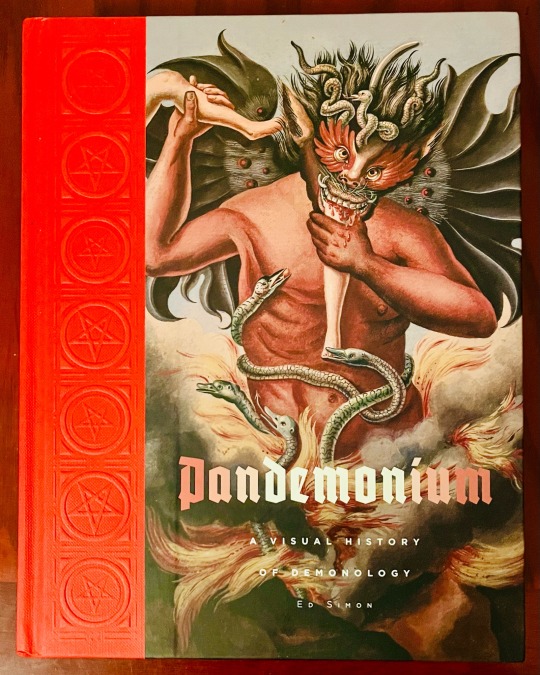

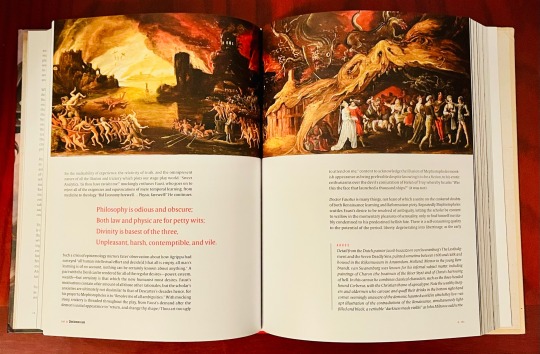
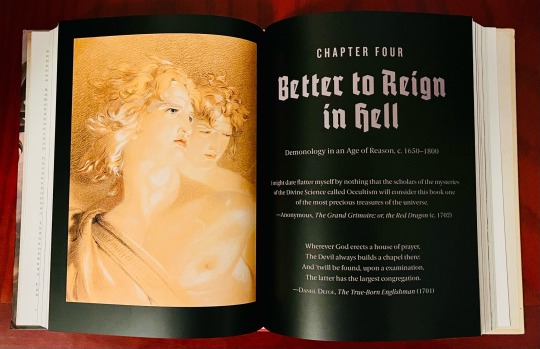
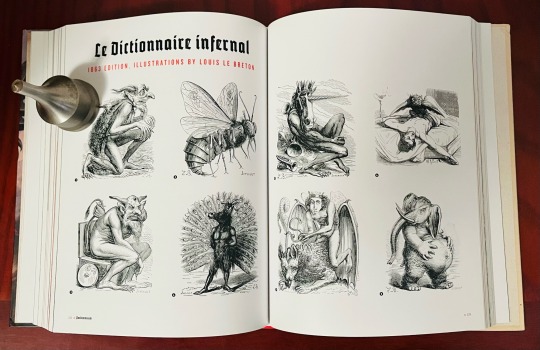
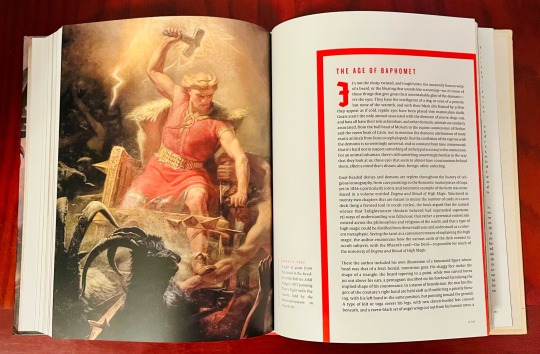
Book 471
Pandemonium: A Visual History of Demonology
Ed Simon
Cernunnos / Abrams 2022
And we’re back. And I’m skipping ahead to my new purchases. For some reason, the next couple of books on my bookshelf aren’t interesting right now.
I don’t know much about Cernunnos, except that it is an imprint under the Abrams Books banner, but a casual glance at their catalog lists a pretty interesting intersection of subjects. From a reissue of the Wil Huygen classic Gnomes to volumes about fashion both high and low to books by artist Mark Ryden, it definitely seems like a publisher I will need to pay more attention to in the future. This is a very well produced book. With a quarter-bound paper over boards binding (embossed with pentagrams), hundreds of illustrations throughout, and two-color text, this book is a lovely devotion to the diabolical—demons, rebel angels, and the tangled family tree of the infernal from ancient sources to modern.
#bookshelf#library#personal collection#personal library#books#bibliophile#booklr#book lover#illustrated book#pandemonium#Ed simon#cernunnos#abrams books#cultural history#art#paranormal
7 notes
·
View notes
Text
youtube
Bonne matinée 🆕️🕺💙
The Chemical Brothers 🎶 No Reason
(Neon Marching Band Video)
#new music#the chemical brothers#video clip#no reason#tom rowlands#ed simon#music video#funk techno#neon marching band#clip music video#youtube#bonnematinée#fidjie fidjie
25 notes
·
View notes
Text
Obsessed with the Young Royals finale.
Obsessed with Simon, Sara, Wilhelm and Felice driving away from a shutdown Hillerska, free from a system which was never going to accept them, happy and together.
Obsessed with how there’s still a chance Hillerska could reopen because that system is next to impossible to take down and the upper-class rarely face real consequences for their actions.
Obsessed with August’s face when he saw Wilhelm walking away, realising that he was trapped. Wilhelm said August was the heir they needed but he couldn’t have been more wrong - that man has bucket loads of trauma, an eating disorder he isn’t even close to ready to confront and no support system around him, he’s not gonna do much better with the role of Crown Prince than Wilhelm did.
Obsessed with Nils coming out to his friends and them easily accepting him, because their issue with Simon really was the fact that he was poor and a socialist, and Nils both still believes in the system he’s in and his queerness doesn’t destabilise the system the same way Wilhelm’s does.
Obsessed with Stella ending up with Fredrika, because although Rosh might have been fun to hang out with for a night Stella also still believes in and upholds the system she belongs to and Rosh was never going to fit in that system or uphold the traditional feminine values needed to survive in it.
Obsessed with how the monarchy is portrayed as unchangeable and impossible to modernise because it’s built on such outdated ideals.
Obsessed with the mix of both happy and open-ended endings.
I just adore it so much
#young royals#wilmon#simon eriksson#sara eriksson#prince wilhelm#felice ehrencrona#august of årnäs#tw: ed#young royals spoilers
2K notes
·
View notes
Text
"Eschewing both the reductionism of uncomplicated belief and disbelief, being neither the traditionally faithful nor atheistic, radical theology took religion seriously but aimed to construct revolutionary and liberatory understandings of myth, ritual, and scripture that could speak to the dearth of meaning in our contemporary moment. If anything, there was a sense that religion was too important to be left to the religious, and that in the example of past idiosyncratic, eccentric, or iconoclastic thinkers and movements, there could be a way to model more emancipatory practices and theologies for the future. Radical theology is a broad congregation, but as an approach what it shares is an acknowledgement of how damaging orthodox modes of belief can be, with a utopian desire to forge a new way of worshiping, praying, contemplating, and agitating."
Simon , Ed. “Radical Theology: A Syllabus.” JSTOR Daily, 4 Mar. 2023, source.
0 notes
Text

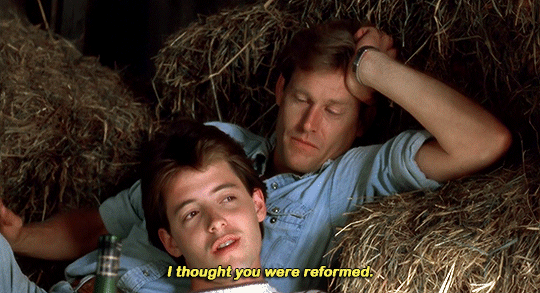


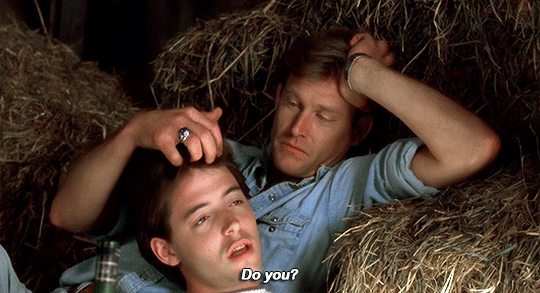
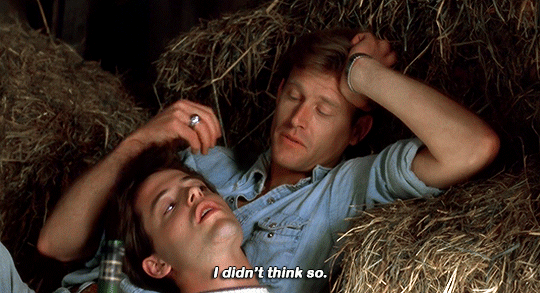
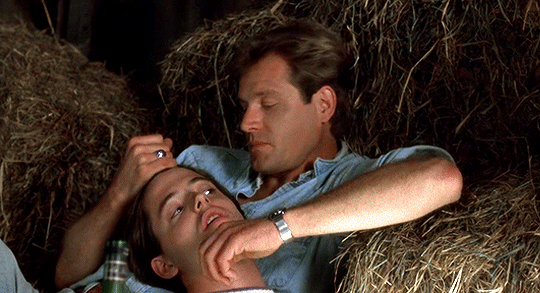
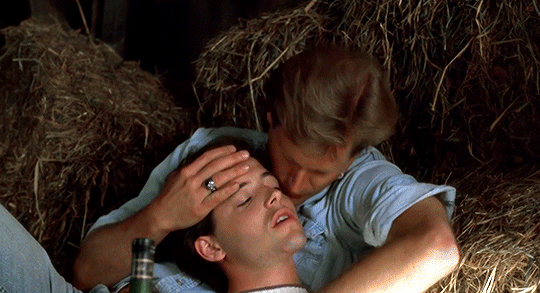
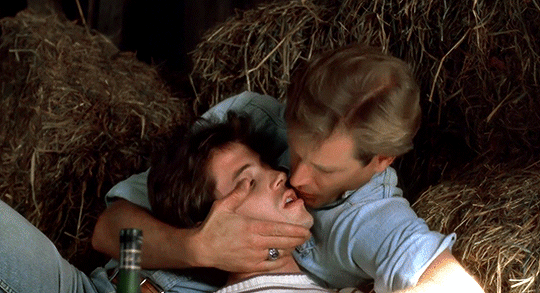
Torch Song Trilogy (1988)
#matthew broderick#brian kerwin#torch song trilogy#torch song trilogy 1988#alan simon#ed reese#filmedit#lgbtedit#lgbt#gayedit#filmgifs#actors#gifs#mine#*#usermichi
5K notes
·
View notes
Quote
We’re so obsessed with something seen just beyond the field of vision that vibrates at a frequency that human ears can’t quite detect—from Medieval Danish courts to the Overlook Hotel, Hill House to the bedroom of Ebenezer Scrooge—that we’re perhaps liable to wonder if there is something to ghostly existence. After all, places are haunted, lives are haunted, stories are haunted. Such is the nature of ghosts; we may overlook their presence, their flitting and meandering through the pages of our canonical literature, but they’re there all the same (for a place can be haunted whether you notice that it is or not).
Ed Simon, from his essay “Who’s There?: Every Story Is a Ghost Story”, published in The Millions, August 18, 2021
54 notes
·
View notes
Text
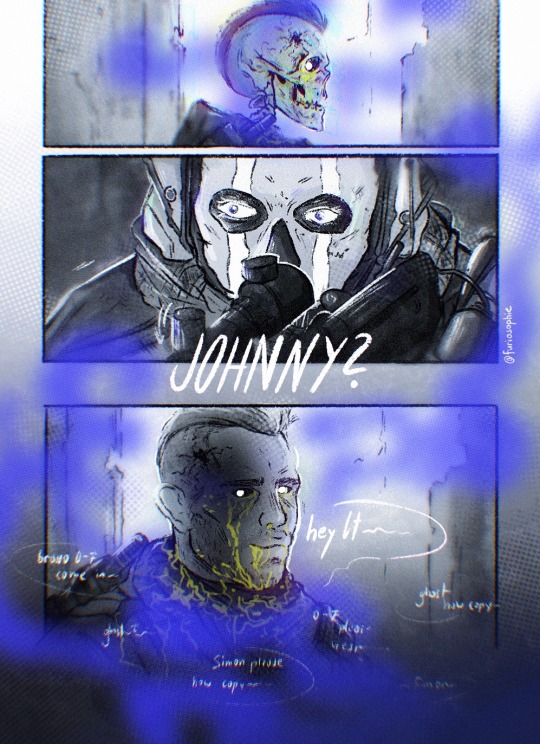
((zombie ghost this, zombie ghost that, what about eldritch!soap who came back wrong??))
#soapghost#ghostsoap#ghoap#john soap mactavish#simon ghost riley#eldritch!soap#LISTEN i saw that corny s2 blackcell trailer and the whole time i was thinking that dude at the end was gonna be soap#missed opportunity honestly like come on bring him back u cowards#make him more f***ed up while ur at it#as a treat#soph arts#id in alt text
2K notes
·
View notes
Text
But of course they do in real life as well; we interpret peoples’ consumer choices in our day-to-day interactions far more than we do in fiction, and what we look for are signs of ideological affiliation. As our politics become only more tribal, what we eat, what we wear, what we drive all become signifiers, readymade symbols that advertise our identity. Imagine somebody who drives a Ford pickup, enjoys a Coors with his Chick-fil-A as compared to a woman who owns a Subaru with a radio tuned to NPR on her way to Trader Joe’s. You know exactly who these people are, or at least who they’re supposed to be. Often this has little to do with class in any traditional socio-economic sense, as “lifestyle usurped the more traditional class markers of income, and even education and occupation,” as Lizabeth Cohen explains in A Consumer’s Republic: The Politics of Mass Consumption in Postwar America. Cohen asks you to predict the different sorts of people who would buy a “Cadillac over a Chevrolet, a ranch house instead of a Cape Cod, The New Yorker over True Story magazine,” and you immediately understand her point. It speaks to something deterministic in the American psyche since the type of ice cream we buy predicts who we’ll vote for, though I offer no appraisal on this one way or the other, just the observation. And politics is only one vestige of this, obviously, consumer choices are instrumental in the formation of identity within and across races, genders, sexualities, and religions as well. We shop, therefore we are.
Ed Simon, Tripping the Late Capitalist Sublime
13 notes
·
View notes
Text




carly simon photographed by ed caraeff for her album “no secrets” in london, england, march 15, 1971🌿
#carly simon#ed caraeff#1971#70s#1970s#70s music#70s makeup#70s icons#70s hair#70s aesthetic#classic rock#vintage#retro#70s rock#james taylor
771 notes
·
View notes
Text
bought myself a new book today, its called Elysium: A Visual History of Angelology by Ed Simon. its so informative, he has a very interesting perspective on the angelic. ngl i js realized the author was a male but like,,, he writes like a woman?? ykwim? like emotionally intelligent and in tune with the earthly choirs
1 note
·
View note